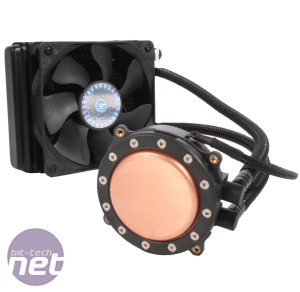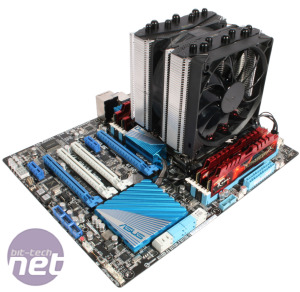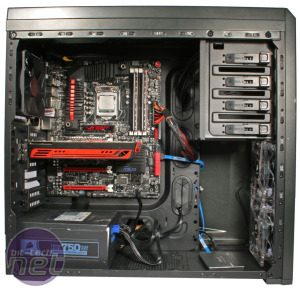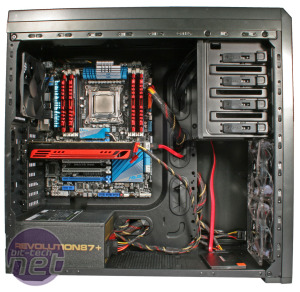CPU Coolers: New Benchmarks
Here at bit-tech, we take our hardware testing very seriously, and always want to provide results that are both accurate and relevant to our audience. As such, we felt it was time to reconsider and update our previous CPU cooler testing. The changes we've implemented do not amount to a full overhaul, but they have allowed us to make the testing procedure more efficient and be a bit more reflective of modern set-ups.The details of the changes are described below, and using the new test systems we've retested a handful of coolers to give us a starting point. The coolers are all ones that we've looked at before, but we've chosen both liquid and air coolers across a range of price points and all the results presented over the page are brand new, and what we'll be adding to in the future.
The biggest change is the complete removal of an AMD test system. This choice is based on the fact that the Socket AM3 rig was becoming less relevant, and we've so far been unable to build an overclocked Socket FM2 rig capable of providing accurate, reliable and consistent results. It's something we have an eye on bringing back in the future, but presently we'll only be testing coolers in systems based on Intel's LGA1155 and LGA2011 sockets.
While a full description of our test rigs and procedures can be found on the next page, our LGA1155 system still uses the same Core i7-2600K processor, but is now coupled with an Asus Maximus V Formula motherboard. Though this Sandy Bridge processor is from an older generation than the current Ivy Bridge processors available, it's still comparable and also uses a higher quality internal thermal paste. We've also pushed the CPU a bit further than before, as we now run it at 4.4GHz (44 x 100MHz) with a vcore of 1.275V.
Our LGA2011 rig is much the same as before, as it still uses a Core i7-3960X Extreme Edition CPU fitted to an Asus P9X79 Pro motherboard. In this instance, we've lowered the overclock and core voltage marginally from before, as the previous overclock was too stressful for many coolers. We now run the CPU at 4.2GHz (37 x 113.5MHz) with a vcore again of 1.275V.
Another change we've made is that both systems are now housed in one of Corsair's Carbide 500R cases. Our previous SilverStone chassis were beginning to show their age, and the 500R's support for both 2 x 120mm and 2 x 140mm radiators makes it a more suitable choice given the rapidly expanding range of larger all-in-one liquid coolers hitting the market.
We've also dropped idle temperature results, having never found them to be much of a useful tool of comparison. We also still only test with the CPU overclocked, as we feel it provides a better indication of a cooler's ability, and we would also expect that most people investing in a half decent CPU cooler would be overclocking as there's little reason not to these days. Finally, coolers optimised for PWM control will now be tested with their fans at full speed and, in our LGA1155 system, with our motherboard's standard PWM setting. Please be aware that PWM settings are not standardised and can vary between motherboard manufacturers.

MSI MPG Velox 100R Chassis Review
October 14 2021 | 15:04














Want to comment? Please log in.